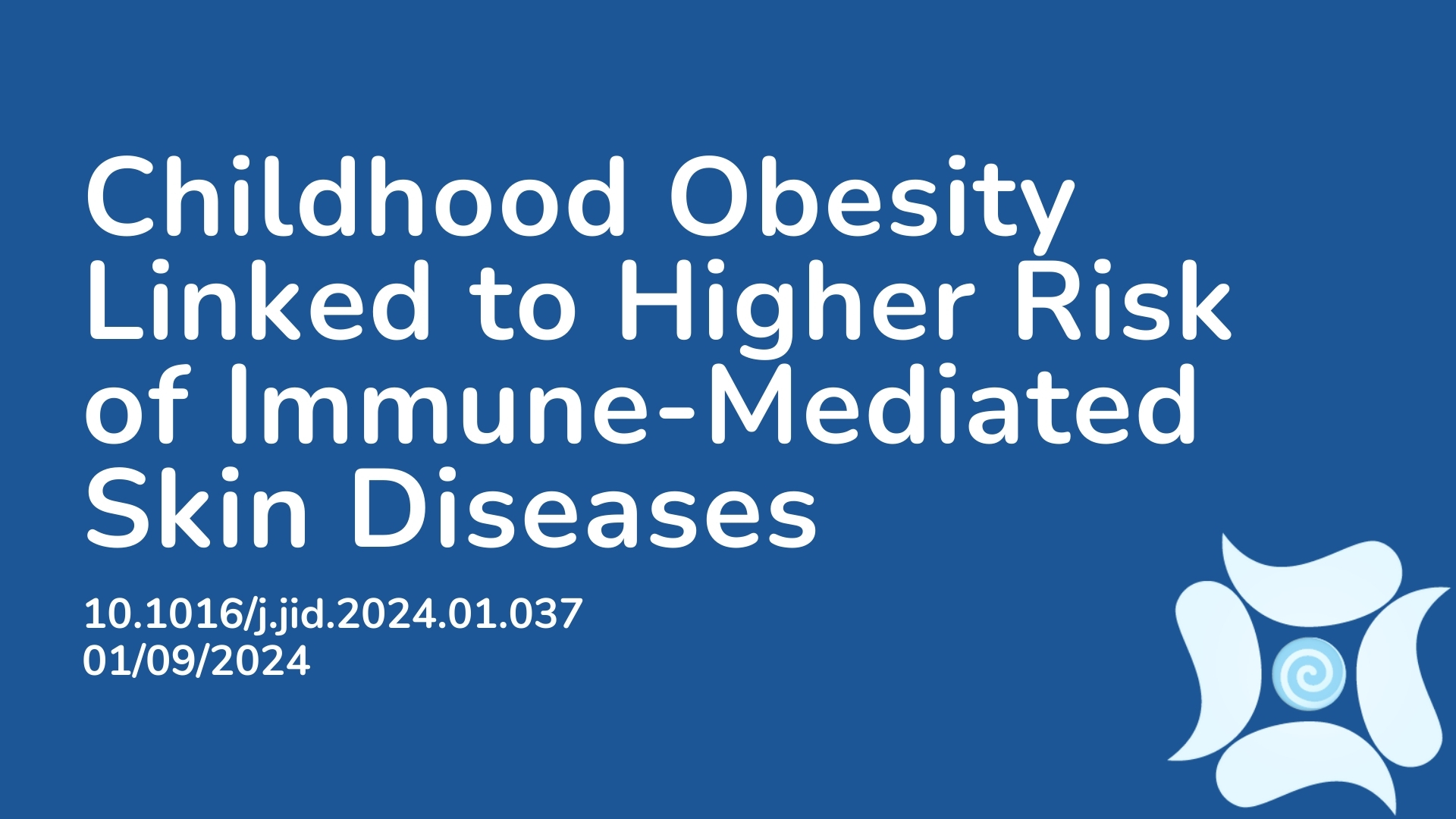Summary:
Immune-mediated skin diseases (IMSDs) like alopecia areata, atopic dermatitis, and psoriasis have become significant public health concerns, particularly among children, impacting their quality of life and that of their families. Despite some effective treatments, overall management of these conditions in children is lacking. The rise in childhood obesity is another critical public health crisis, as obese children are at higher risk for non-communicable diseases like diabetes and cardiovascular issues. Research also suggests a link between obesity and chronic inflammatory skin diseases, potentially triggered by excessive adipose tissue. Although studies have explored the connection between childhood obesity and IMSDs, most were limited by small sample sizes and cross-sectional designs, leaving uncertainty about whether obesity or BMI changes lead to atopic dermatitis and psoriasis, or vice versa. To address this, a large population-based longitudinal study using data from the Korean National Health Insurance Service (NHIS) examined the relationship between BMI changes and the development of IMSDs in children. The study found that obese children have a higher risk of developing IMSDs, with an increase in BMI raising the risk of atopic dermatitis, while a decrease in BMI lowers it. Thus, early childhood obesity may elevate the risk of these skin diseases, with weight changes significantly influencing atopic dermatitis risk.
Abstract:
Whether childhood obesity or weight gain leads to the development of pediatric immune-mediated skin diseases remains unclear. We aimed to determine the associations between body mass index or body mass index changes and the development of 3 main immune-mediated skin diseases—alopecia areata, atopic dermatitis (AD), and psoriasis—by analyzing a longitudinal cohort of 2,161,900 Korean children from 2009 to 2020. The findings indicated that children who were obese had a higher risk of pediatric immune-mediated skin diseases than those with normal weight (P for trend < .01). An increase in body mass index was associated with a higher risk of AD, whereas a decrease in body mass index was correlated with a reduced risk of AD. Children who gained weight, transitioning from normal to overweight, exhibited a higher AD risk than those who maintained a normal weight (adjusted hazard ratio = 1.15, 95% confidence interval = 1.11–1.20). However, those who shifted from being overweight to achieving a normal weight (adjusted hazard ratio = 0.87, 95% confidence interval = 0.81–0.94) had a lower AD risk than children who were overweight who maintained their weight. In summary, early childhood obesity may increase the risk of pediatric immune-mediated skin diseases. Weight gain may increase AD risk, whereas weight loss may lower the risk.
Article Publication Date: 01/09/2024
DOI: 10.1016/j.jid.2024.01.037



